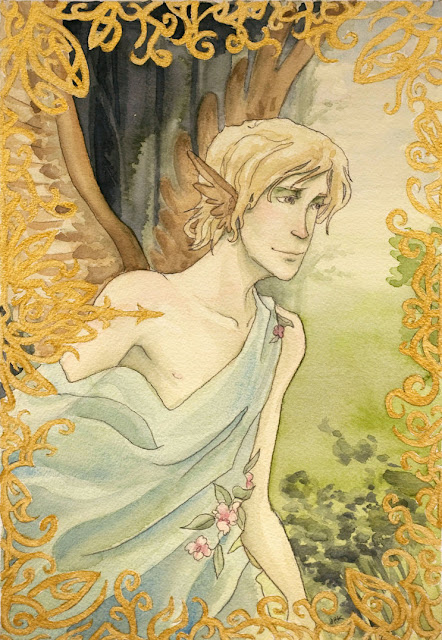Anemoi were wind gods who were each ascribed a cardinal direction from which their respective winds came (see Classical compass winds), and were each associated with various seasons and weather conditions.
The Anemoi are minor gods and are subject to the god Aeolus. They were sometimes represented as gusts of wind, and at other times were personified as winged men. They were also sometimes depicted as horses kept in the stables of the storm god Aeolus, who provided Odysseus with the Anemoi in the Odyssey. The Spartans were reported to sacrifice a horse to the winds on Mount Taygetus. Astraeus, the astrological deity (sometimes associated with Aeolus), and Eos/Aurora, the goddess of the dawn, were the parents of the Anemoi, according to the Greek poet Hesiod.
Of the four chief Anemoi, Boreas (Aquilo in Latin) was the north wind and bringer of cold winter air, Zephyrus (Favonius in Latin) was the west wind and bringer of light spring and early-summer breezes, and Notus (Auster in Latin) was the south wind and bringer of the storms of late summer and autumn; Eurus, the southeast (or according to some, the east) wind, was not associated with any of the three Greek seasons, and is the only one of these four Anemoi not mentioned in Hesiod's Theogony or in the Orphic Hymns.
The Anemoi are minor gods and are subject to the god Aeolus. They were sometimes represented as gusts of wind, and at other times were personified as winged men. They were also sometimes depicted as horses kept in the stables of the storm god Aeolus, who provided Odysseus with the Anemoi in the Odyssey. The Spartans were reported to sacrifice a horse to the winds on Mount Taygetus. Astraeus, the astrological deity (sometimes associated with Aeolus), and Eos/Aurora, the goddess of the dawn, were the parents of the Anemoi, according to the Greek poet Hesiod.

Comments
Post a Comment